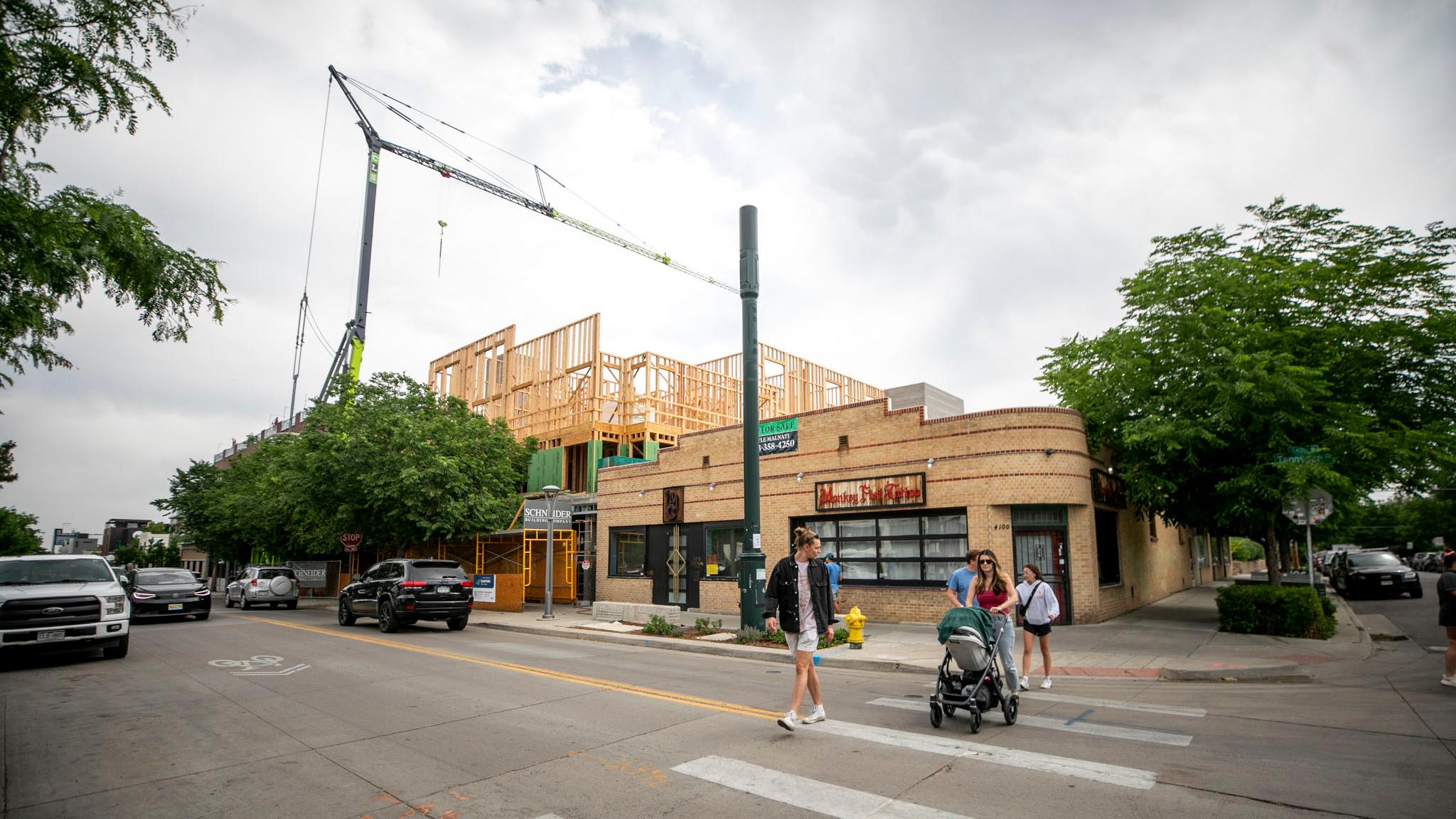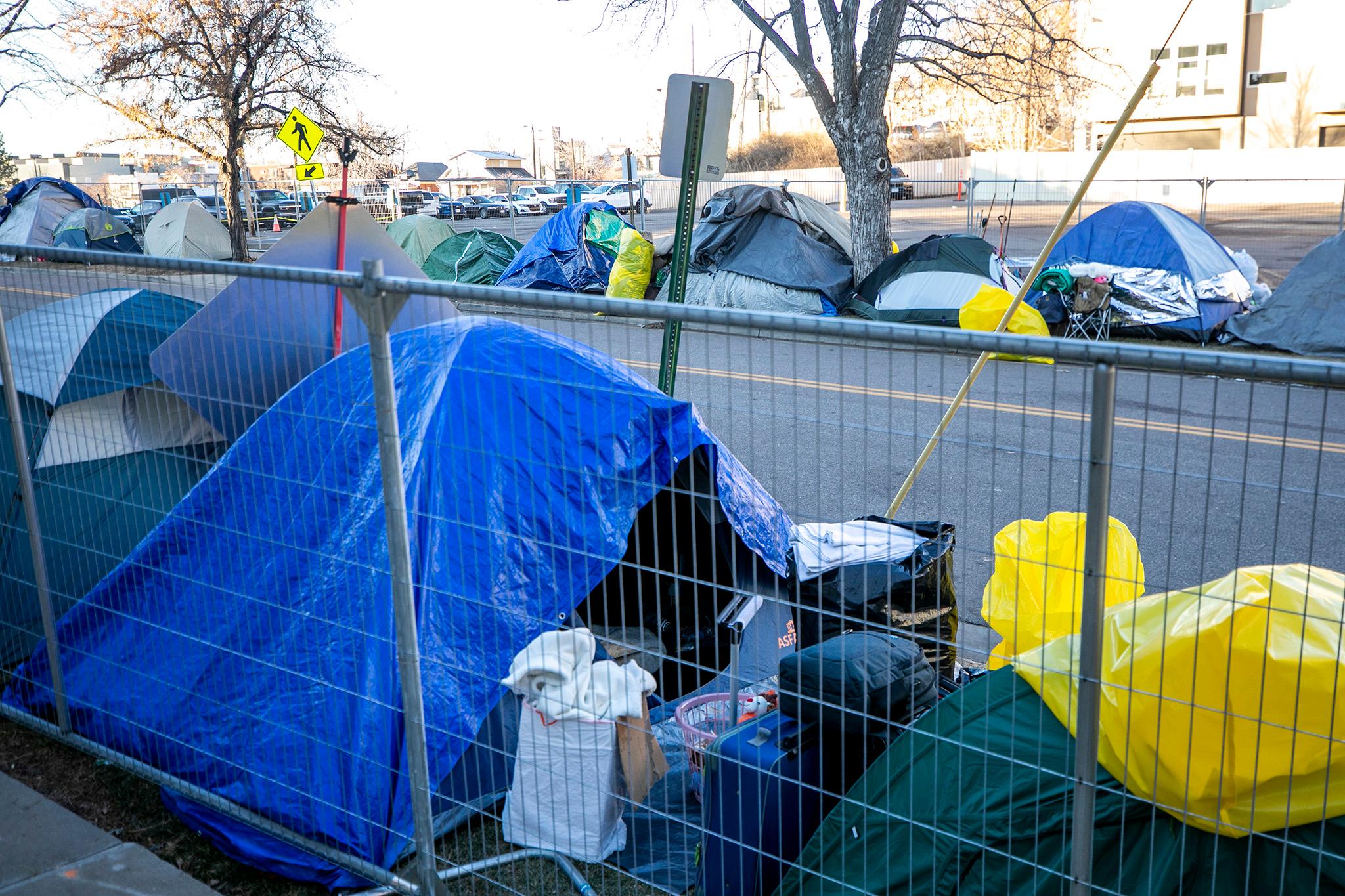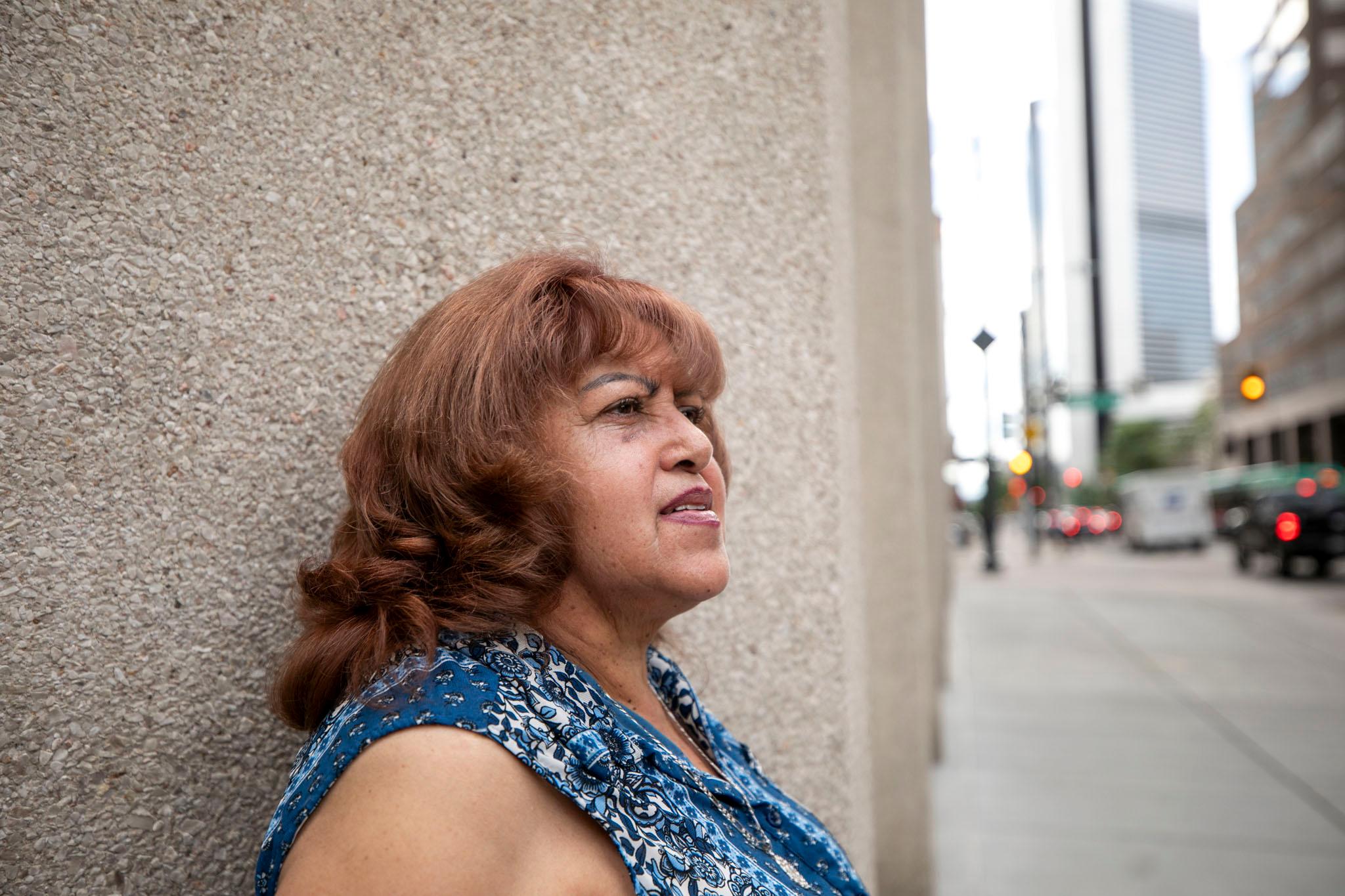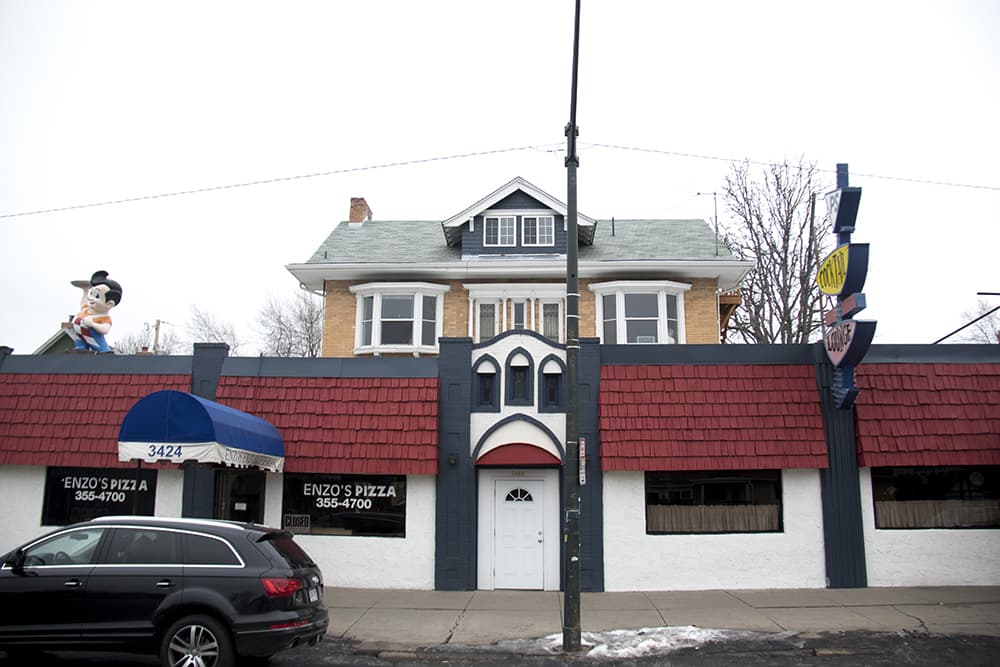As Tennyson Street has boomed over the past decade, local business owners have experienced perks and problems from all that massive development in the Berkeley neighborhood.
Certainly, hundreds of new homes mean hundreds of new potential customers — and many business owners Denverite spoke to said that’s a good thing.
For Jimmy Funkhouser — the owner of Feral, an outdoor gear store at 3936 Tennyson St. — the new homes and greater density have given him more shoppers. He’s all about what the developers are doing.
Well, almost.
Funkhouser grew tired of the city shutting down streets and sidewalks with too little notice when cranes moved in and out to construct those new developments. His business suffered the consequences.
For years, he wouldn’t find out about the closures until he showed up to work.
“Back then, most of the closures happened on weekdays, because it was just kind of understood that closing the street on a Saturday or Sunday was extremely disruptive,” Funkhouser said.
Still, surprises disrupted business, so he and others in the Tennyson Berkeley Business Association advocated for more notice from developers and the city.
And largely, that’s happened.
But the weekday closure timing has shifted.
“Over the last year, that started to change,” Funkhouser said. “We came to discover through observation that the majority of the closures were actually being approved for Saturday and Sunday, and we hadn't really received any information on why that change happened,” Funkhouser said.
That was a disaster for Feral and other businesses.
“We do about half of our business on Saturday and about 70 to 80 percent of our business over the weekend,” Funkhouser said.
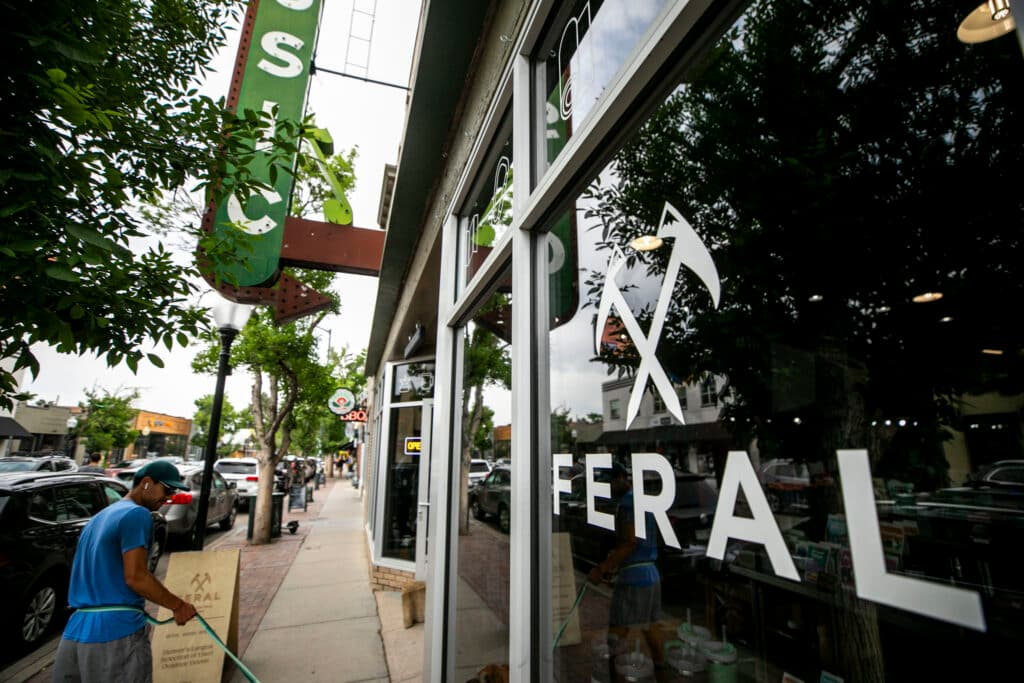
So why is the DOTI issuing permits for street and sidewalk closures over weekends?
Cyndi Karvaski, a spokesperson for DOTI, said one of the agency's big goals is to keep traffic moving, especially during weekday commutes. This means the city will only issue permits between 8:30 a.m. and 3:30 p.m. on weekdays.
But on weekends, the city will permit closures between 7 a.m. and 7 p.m., giving companies a longer window of time to move their cranes in and out.
A weekday permit can often result in a longer shutdown than a weekend permit, because the companies need more than seven hours to complete their work.
- Did you know? We dedicated a whole Street Week to Tennyson
Also, DOTI has more factors than just local businesses to consider. Residents are affected by closures, as are local fire stations and schools.
But Funkhouser said Tennyson shutdowns have more impact on everyone during the weekends.
“Sure we all see the traffic problems and congestion problems that are happening in Denver, but Tennyson Street is not a commuter street,” Funkhouser said. “It's not a street that people drive down to get to work.”
While moving the crane loading to the weekend was designed, in part, to increase safety, Funkhouser said doing so has the opposite effect.
“Safety issues come with doing this work on the weekend,” he said. “They're literally parking cranes in the middle of the street on a busy Saturday, when traffic on Tennyson Street is four or five times what it would be on a weekday.”
The agency has told business owners the city would consider avoiding weekend closures on a case-by-case basis, but doing so would require approval from multiple people within the agency and slow things down.
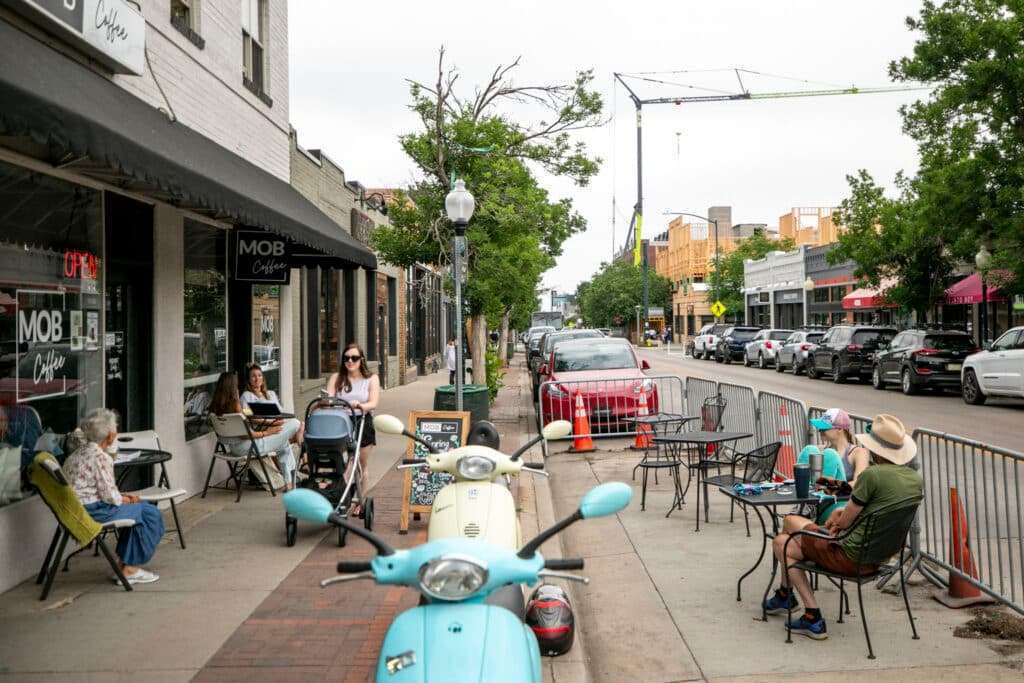
The business owners met with Councilmember Amanda Sandoval who helped broker a conversation with DOTI.
Sandoval, whose family owned a business in the area that suffered through shutdowns related to countless construction problems, says she understands the business owners’ frustration.
Several years back, she worked with neighborhood business associations and the city to stop shutdowns during holidays, when shopping traffic is up.
She’s even explored the possibility of shutting down side streets instead of Tennyson over the weekends, but doing so has proved too cumbersome.
“The city's too busy to get into a nuanced position where they can just say yes during the summertime on closing these other side streets and maintaining these local collectors open,” she said. “It's just too complicated.”
Even so, she acknowledges shops and restaurants struggle to make ends meet during frequent shutdowns.
While the city offers funds to support businesses affected by long-term construction project closures, one-off incidents don’t apply. Most of the Tennyson closures last one day or two, as cranes go in or out, and are not an ongoing inconvenience. As such, the businesses aren’t eligible for available city support.
Ultimately, as Sandoval sees it, the businesses will benefit from hundreds of new customers in the area.
Funkhouser agrees. He just wishes the city planned according to his neighborhood's business patterns and quit shutting down during prime shopping hours.
“It's just crushing some of the businesses on the street right now, in a period where things are already pretty difficult,” Funkhouser said.
More Tennyson stories:
- Berkeley Inn just wants to be your neighborhood bar
- Hunters are flocking to Colorado. Tennyson Street’s Meat Cleaver is ready to help them prep dinner
- Here’s how e-bike rebates have shaped one shop on Tennyson Street
- It’s been three decades since live shows played the Historic Elitch Theatre. Could the curtain rise again next summer?
- Slot homes are some of Denver’s most hated buildings. What’s it like living in one?
- Denver’s cat cafes are here fur when you want to have a purrfect time

